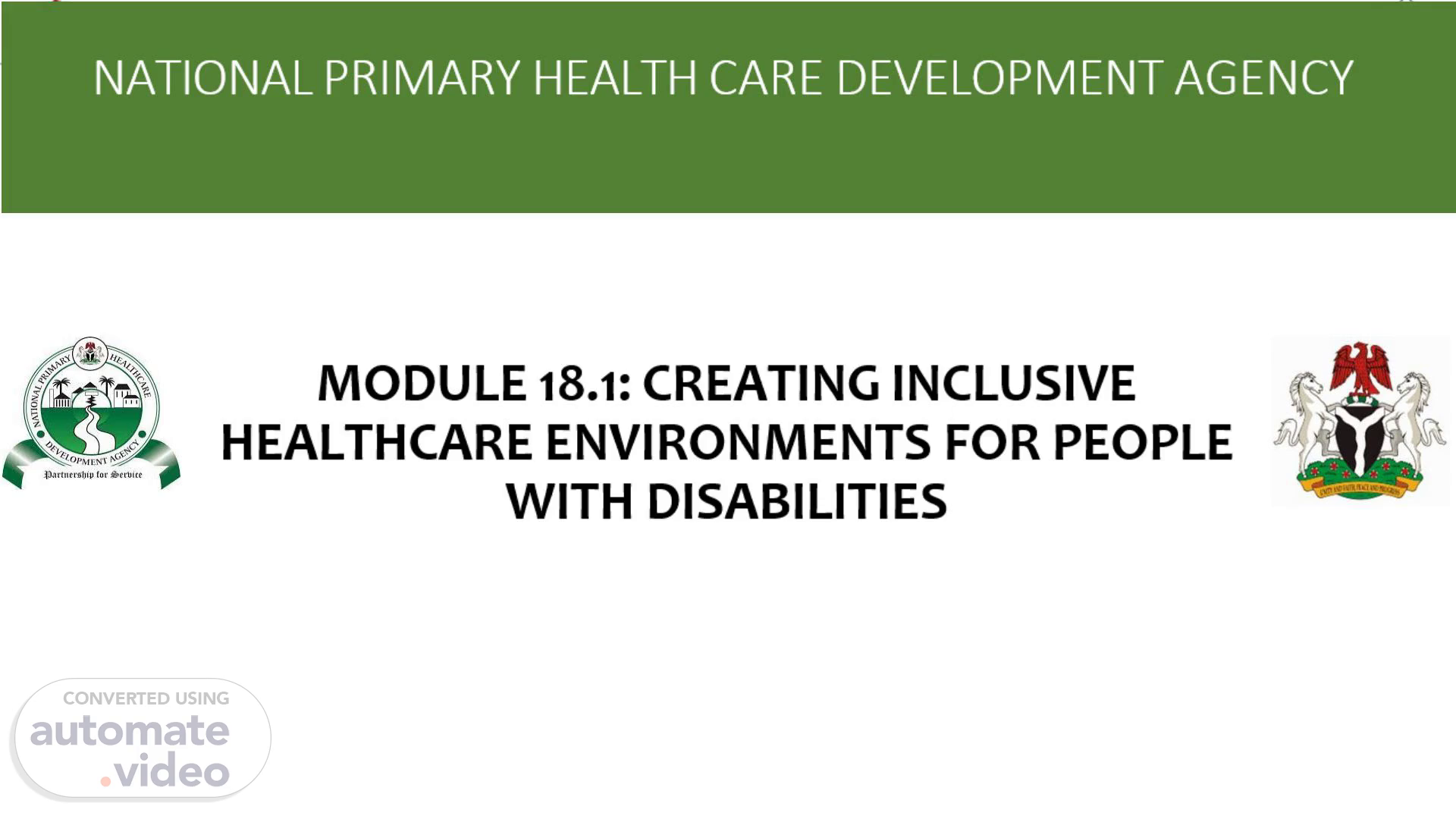Scene 1 (0s)
[Virtual Presenter] Welcome to the NPHCDA Primary Healthcare training series. This is module MODULE 18.1: CREATING INCLUSIVE HEALTHCARE ENVIRONMENTS FOR PEOPLE WITH DISABILITIES.
Scene 2 (14s)
[Audio] By the end of this training, participants will be able to: Develop knowledge of disability, impairment and disability inclusive care basics; Be aware of specific needs of persons with disabilities of various types and learn how to address them; Learn how to provide reasonable accommodation, including disability inclusive communication and acceptable language, deliver disability inclusive examinations/treatment, and know how to make appropriate referrals for persons with disabilities; Understand how to obtain informed consent, maintain privacy for persons with disabilities, and provide safety and welfare of persons with disabilities.
Scene 3 (57s)
[Audio] We now present an overview of Understanding the needs and experiences of people with Disabilities and Creating inclusive and accessible healthcare environments.
Scene 4 (1m 8s)
SESSION 18.1.1: UNDERSTANDING THE NEEDS AND EXPERIENCES OF PEOPLE WITH DISABILITIES.
Scene 5 (1m 17s)
[Audio] What comes to mind when you think of disability? What do you see in the images to the right? Click pause, write down your answers, and then continue the video to see if you are correct..
Scene 6 (1m 29s)
[Audio] Impairment is a physical, mental, or sensory condition that affects the body's structures or organs. Impairments can bevisible or invisible, including: Visual Hearing Physical Intellectual Psychosocial or Mental Communication Disability is caused by the interaction between a person's impairment and the factors in their environment. It results in difficulties to participate in daily living, school, work, and social life. 1 in 7 people have disabilities, and disability becomes much more common with age..
Scene 7 (2m 8s)
[Audio] People with disabilities have the fundamental right to equitable access to healthcare, and as health workers, it is our duty to ensure that they receive the same high-quality care and support as any other person. In Nigeria, at least 8% (~35 million) the population live with disabilities, likely to be 15-20% Disability inclusive health is included as a priority in Nigeria's : National Health Policy, 2016 Discrimination of Persons with Disabilities (Prohibition) Act, 2018 National Commission for Persons with Disabilities created in 2020 Renewed Hope Agenda producing health for ALL Nigerians.
Scene 8 (2m 59s)
[Audio] In three groups, discuss and identify the barriers present in each scenario. Scenario 1: Paul is a wheelchair user. Scenario 2: Alice is a mother with a communication impairment. Scenario 3: Tendo has a physical impairment and developmental disability. Pause the video now. Restart the video and Share back your view of the barriers from your scenario?.
Scene 9 (3m 26s)
[Audio] Thank you for listening. an. NATIONAL PRIMARY HEALTH CARE DEVELOPMENT AGENCY.
